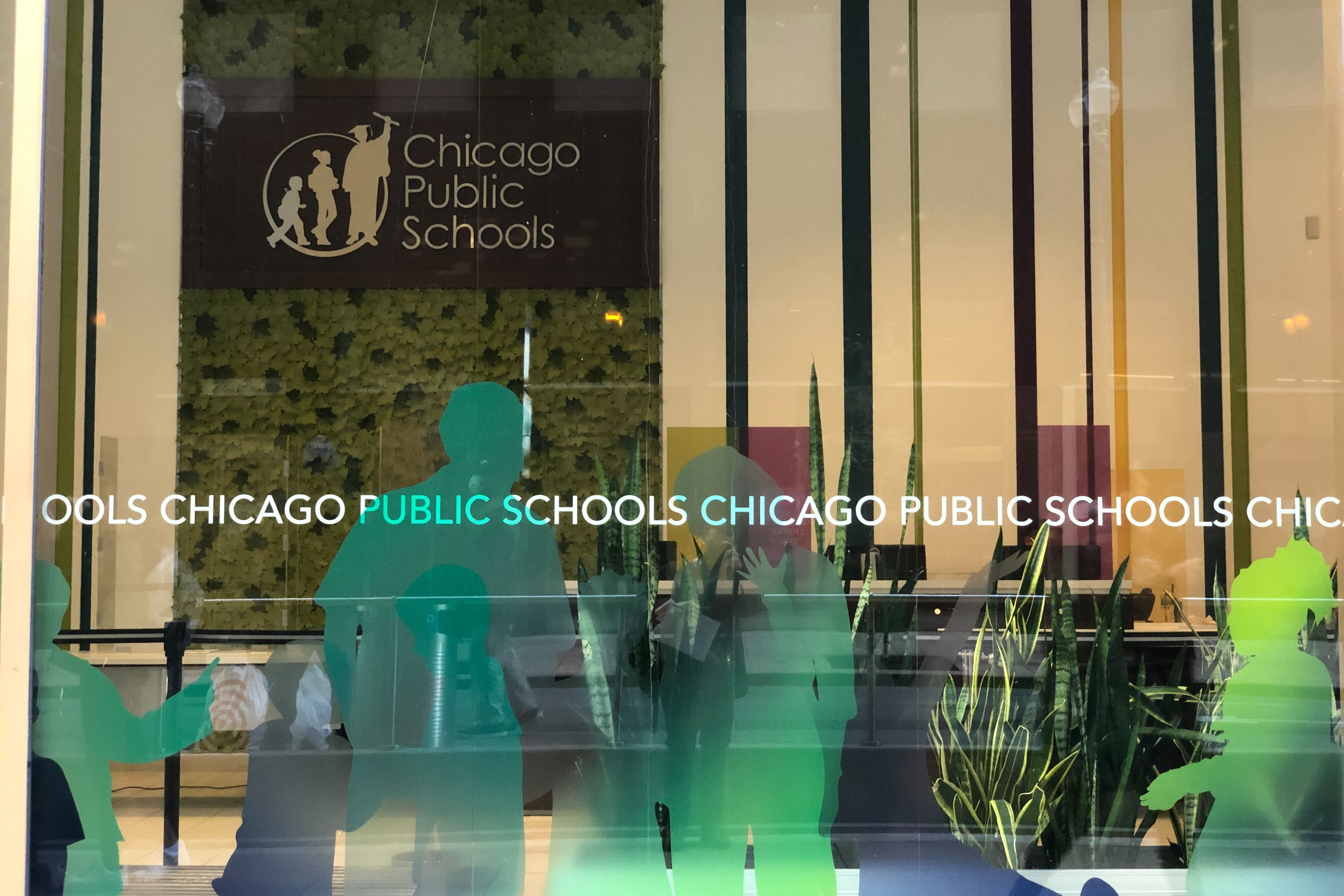Sign up for Chalkbeat Chicago’s free daily newsletter to keep up with the latest education news.
In just six months, Chicago’s Board of Education will swell to 21 members, half elected for the first time. But it’s not yet clear where the board will sit to make decisions every month about Chicago Public Schools.
The Chicago Board of Education, currently made up of seven members appointed by the mayor, typically meets twice a month at its downtown headquarters at 42 W. Madison St., where it holds public meetings and votes on financial and policy decisions that impact Chicago’s 600 public schools and more than 323,000 students.
The new board — which will have 10 elected members and 11 appointed ones before becoming a fully elected board in 2027 — will require a number of adjustments for the district, including the logistical change of “expanding the size of our boardroom,” CPS CEO Pedro Martinez said in a prepared statement.
But the district has not revealed the details behind that plan, including how it would expand the room or how much such a project would cost. A district spokesperson said the plans “to accommodate the larger elected Chicago Board of Education are not yet final.”
That spokesperson did not say whether the district had budgeted funding for such a project, but said the district would share plans with the public and board when they are finalized.
The current board room is a large space on the ground level of the district’s headquarters. At the back of the room are dozens of seats for the general public and staff to sit and watch meetings, as well as a lectern where people can share comments and speak to the board. A glass partition separates the space for the public from the district’s executive leadership. The seven board members, along with Martinez and a student member, sit on the dais on the other side of the partition, at the front of the room.
CPS higher-ups, such as the Chief Education Officer Bogdana Chkoumbova, sit at desks directly below where the board and Martinez sit.
It’s unclear how much work the district can do on its own to expand because it doesn’t own the building. CPS currently rents the space in the Loop. The district moved to the building in 2014 after selling its old headquarters to Blue Star Properties for $28 million.
New York City schools’ appointed board, known as the Panel for Educational Policy, has 24 members, three more than Chicago’s new board will have. That panel meets at different school auditoriums every month.
The current Chicago board, at least, plans to continue meeting in the community from time to time, according to a CPS spokesperson, who said no decisions have been made yet for the new board, except that CPS is “committed to ensuring meetings are accessible to the public and that the future Board has the appropriate facilities to be able to govern effectively.”
Reema Amin is a reporter covering Chicago Public Schools. Contact Reema at ramin@chalkbeat.org.






